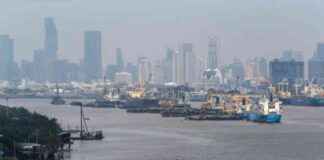Britain Urged to Ban Imports of Xinjiang Forced Labour Products
In a recent development, a senior lawmaker from the ruling Labour party in the UK has called for a ban on imports of products made by forced labor in China’s Xinjiang region. This call comes amidst growing concerns about the human rights abuses faced by the Uyghur population in Xinjiang. Liam Byrne, who heads parliament’s Business and Trade Committee, has urged the British government to take action similar to the Uyghur Forced Labor Prevention Act introduced by the United States in 2021.
Byrne emphasized the need for stronger measures to combat forced labor and ensure supply chain transparency. He highlighted the importance of upholding human rights and promoting fair trade practices. The lawmaker expressed his disappointment with the previous government’s failure to address these issues and called for decisive action from the new government.
One of the key concerns raised by lawmakers is the potential listing of the China-founded fashion retailer Shein on the London stock exchange. There have been calls for greater scrutiny of Shein’s labor practices, especially in light of reports of preparations for a London listing. Byrne has indicated his intention to summon Shein executives to appear before the committee he leads, in order to address these concerns.
In response to queries about the allegations of forced labor, Shein has maintained that it has a zero-tolerance policy for such practices. The company has stated that it prioritizes visibility across its supply chain and is committed to upholding human rights standards. Shein has emphasized that it complies with all applicable laws and ensures that its contract manufacturers adhere to ethical sourcing practices.
Despite Shein’s assurances, opposition to the company’s potential listing in London is growing. Campaigns led by retail consultant Mary Portas and human rights groups have called on the government to block Shein’s IPO. Concerns about the company’s labor practices and its connection to Xinjiang have fueled calls for greater scrutiny and regulatory oversight.
The Labour party, which recently won the election, has signaled its support for Shein’s listing. However, lawmakers and activists are urging the government to reconsider its stance and take a firm stance against companies implicated in human rights abuses. The issue of forced labor in Xinjiang has become a focal point for discussions on ethical trade practices and corporate accountability.
In conclusion, the call to ban imports of Xinjiang forced labor products reflects a broader push for ethical sourcing and responsible business conduct. The UK government faces mounting pressure to address human rights concerns and safeguard against complicity in forced labor practices. As the debate continues, the need for transparency, accountability, and respect for human rights remains paramount in shaping the future of global trade.




















